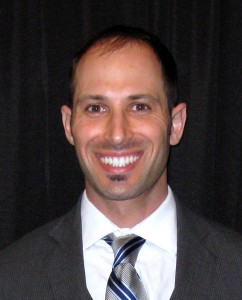The Supreme Court has issued its long-awaited opinion in Elonis v. United States, the Facebook threats case. In a narrow opinion by Chief Justice John Roberts, the Court overturned the conviction of Anthony Elonis, who allegedly threatened his ex-wife and federal law enforcement agents through rap lyrics he posted to his Facebook page under personal hip-hop moniker “Tone Dougie.”
The government closed oral argument by emphasizing that “what [Elonis] thinks doesn’t matter.” The Supreme Court, on the other hand, said it does. Specifically, the Court held that in order to successfully prosecute a defendant under the federal interstate threats statute, 18 U.S.C. 875(c), the government must show that the defendant acted with a criminally culpable mental state beyond mere negligence. The Court rejected the notion that a criminal threats conviction could rest solely on proof that a hypothetical reasonable person would find that a statement amounted to a true threat.
The trouble with the opinion issued by the Court in Elonis — and with the current landscape of federal law on true threats — is that it remains unclear exactly what state of mind the law requires. The majority in Elonis expressly declined to decide whether recklessness is sufficient. Furthermore, section 18 U.S.C. 875(c) does not explicitly set forth a requisite mental state, so Elonis could trigger a legislative response by Congress. Lawmakers could shore up the language in 875(c) and explicitly define the mental state greater required for criminal threats convictions. The ball is in Capitol Hill’s court.
So what about the First Amendment?
The Court declined to address the First Amendment argument made by Elonis at trial and on appeal — that the Constitution requires the government to prove that the defendant specifically intended to threaten an identifiable person or group of persons when he communicated the threat. Justices Alito and Thomas chastised the majority for avoiding the constitutional question, but we saw this coming. When the Court granted certiorari in Elonis, it asked the parties to brief and argue the statutory interpretation question even though Elonis appealed solely on First Amendment grounds.
If there is anything we can infer about free speech jurisprudence from the Supreme Court’s holding in Elonis, it is that courts must look beyond the mere content of the purported threat and scrutinize the defendant’s behaviors for indicia of a criminal state of mind. Under Elonis, the hypothetical reasonable person may no longer be the sole arbiter of criminal speech determinations under 875(c). This standard provides some additional breathing space for threatening speech and heightens the importance of context. Nevertheless, artists, lawyers, and scholars are left wondering whether the First Amendment protects violence-laden speech uttered recklessly and without regard for foreseeable emotional and psychological harms to victims.
Brooks Fuller is a 3rd-Year Ph.D. student in the UNC School of Journalism and Mass Communication.



